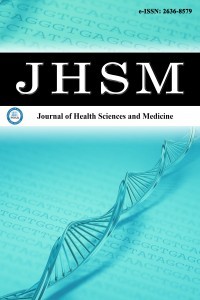1.
Paxton NC, Allenby MC, Lewis PM, Woodruff MA. Biomedical applications of polyethylene. Eur Polym J. 2019;118:412-428. doi:10.1016/ j.eurpolymj.2019.05.037
2.
Murty MVS, Grulke EA, Bhattacharyya D. Influence of metallic additives on thermal degradation and liquefaction of high density polyethylene (HDPE). Polym Degrad Stab. 1998;61(3):421-430. doi:10.1016/ S0141-3910(97)00228-0
3.
Ziabka M, Mertas A, Król W, Bobrowski A, Chlopek J. High density polyethylene containing antibacterial silver nanoparticles for medical applications. Macromol Symp. 2012;315(1):218-225. doi:10.1002/masy. 201250527
4.
Sgarioto M, Adhikari R, Gunatillake PA, et al. Properties and in vitro evaluation of high modulus biodegradable polyurethanes for applications in cardiovascular stents. J Biomed Mater Res B Appl Biomater. 2014;102(8):1711-1719. doi:10.1002/jbm.b.33137
5.
Wang W, Wang C. Polyurethane for biomedical applications: a review of recent developments. Design Manufact Med Devic. 2012:115-151. doi:10. 1533/9781908818188.115
6.
Miyashiro M, Suedam V, Moretti Neto RT, Ferreira PM, Rubo JH. Validation of an experimental polyurethane model for biomechanical studies on implant supported prosthesis - tension tests. J Appl Oral Sci. 2011;19(3):244-248. doi:10.1590/S1678-77572011000300012
7.
Comuzzi L, Tumedei M, D’Arcangelo C, Piattelli A, Iezzi G. An in vitro analysis on polyurethane foam blocks of the insertion torque (IT) values, removal torque values (RTVs), and resonance frequency analysis (RFA) values in tapered and cylindrical implants. Int J Environ Res Public Health. 2021;18(17):9238. doi:10.3390/ijerph18179238
8.
Marchi A, Camporesi M, Festa M, Salvatierra L, Izadi S, Farronato G. Drilling capability of orthodontic miniscrews: in vitro study. Dent J (Basel). 2020;8(4):138. doi:10.3390/dj8040138
9.
Funk JR, Kerrigan JR, Crandall JR. Dynamic bending tolerance and elastic-plastic material properties of the human femur. Annu Proc Assoc Adv Automot Med. 2004;48:215-233.
10.
ISO 178 | 3-Point Bend Test on Plastics. ISO 178 | 3-Point Bend Test on Plastics. Accessed July 1, 2024. https://www.zwickroell.com/industries/plastics/thermoplastics-and-thermosetting-molding-materials/3-point-flexure-test-iso-178/
11.
Şen Z, Mangır A. Innovative equivalent elastic modulus based stress calculation methodology for reinforced concrete columns. Buildings. 2023;13(8):1962. doi:10.3390/buildings13081962
12.
Kiran A, Amin F, Mahmood SJ, Ali A. Flexural strength of modified and unmodified acrylic denture base material after different processing techniques. J Ayub Med Coll Abbottabad JAMC. 2020;32(Suppl 1-4): S672-S677.
13.
Hopkins KD, Weeks DL. Tests for normality and measures of skewness and kurtosis: their place in research reporting. Educ Psychol Meas. 1990; 50(4):717-729.
14.
Misch CE, Qu Z, Bidez MW. Mechanical properties of trabecular bone in the human mandible: implications for dental implant treatment planning and surgical placement. J Oral Maxillofac Surg Off J Am Assoc Oral Maxillofac Surg. 1999;57(6):700-706. doi:10.1016/s0278-2391(99) 90437-8
15.
Shash YH, El-Wakad MT, Eldosoky MAA, Dohiem MM. Finite-element analysis of the effect of utilizing various material assemblies in “All on Four” on the stresses on mandible bone and prosthetic parts. Int J Polym Sci. 2022;2022(1):4520250. doi:10.1155/2022/4520250
16.
Arendts FJ, Sigolotto C. Mechanical characteristics of the human mandible and study of in vivo behavior of compact bone tissue, a contribution to the description of biomechanics of the mandible--II. Biomed Tech (Berl). 1990;35(6):123-130. doi:10.1515/bmte.1990.35.6.123
17.
Dechow PC, Schwartz-Dabney CL, Ashman RB. Elastic properties of the human mandibular corpus. Bone Biodyn Orthod Orthop Treat. 1992; 27:299-314.
18.
Stoppie N, Van Cleynenbreugel T, Wevers M, Sloten JV, Naert I. The Validation of a Compression Testing Method for Cancellous Human Jawbone by High-resolution Finite Element Modeling. | International Journal of Oral & Maxillofacial Implants | EBSCOhost. May 1, 2007. Accessed August 16, 2024. https://openurl.ebsco.com/contentitem/gcd: 36831462?sid=ebsco:plink:crawler&id=ebsco:gcd:36831462
19.
Möhlhenrich SC, Heussen N, Modabber A, et al. Influence of bone density, screw size and surgical procedure on orthodontic mini-implant placement - part B: implant stability. Int J Oral Maxillofac Surg. 2021; 50(4):565-572. doi:10.1016/j.ijom.2020.07.003
20.
Lim SA, Cha JY, Hwang CJ. Insertion torque of orthodontic miniscrews according to changes in shape, diameter and length. Angle Orthod. 2008;78(2):234-240. doi:10.2319/121206-507.1
21.
Lin CL, Yu JH, Liu HL, Lin CH, Lin YS. Evaluation of contributions of orthodontic mini-screw design factors based on FE analysis and the Taguchi method. J Biomech. 2010;43(11):2174-2181. doi:10.1016/j.jbiomech.2010.03.043
22.
ASTM F1839-08(2012)e1 - Standard Specification for Rigid Polyurethane Foam for Use as a Standard Material for Testing Orthopaedic Devices and Instruments. iTeh Standards. Accessed May 1, 2024. https://standards.iteh.ai/catalog/standards/astm/cf113305-7639-4a98-a065-f90df513a67d/astm-f1839-082012e1
23.
Tepedino M, Masedu F, Chimenti C. Comparative evaluation of insertion torque and mechanical stability for self-tapping and self-drilling orthodontic miniscrews - an in vitro study. Head Face Med. 2017;13(1):10. doi:10.1186/s13005-017-0143-3
24.
Erbay Elibol FK, Oflaz E, Buğra E, Orhan M, Demir T. Effect of cortical bone thickness and density on pullout strength of mini-implants: an experimental study. Am J Orthod Dentofacial Orthop. 2020;157(2):178-185. doi:10.1016/j.ajodo.2019.02.020
25.
Jin J, Kim GT, Kwon JS, Choi SH. Effects of intrabony length and cortical bone density on the primary stability of orthodontic miniscrews. Materials. 2020;13(24):5615. doi:10.3390/ma13245615
26.
Orhan ZD, Ciğerim L. A new approach to implant stability using a flexible synthetic silicate-additive beta-tricalcium phosphate-poly (D, L-lactide-co-caprolactone) bone graft: an in vitro study. Polymers. 2024; 16(8):1101. doi:10.3390/polym16081101
27.
Roohani-Esfahani SI, Newman P, Zreiqat H. Design and fabrication of 3D printed scaffolds with a mechanical strength comparable to cortical bone to repair large bone defects. Sci Rep. 2016;6(1):19468. doi:10.1038/srep19468
28.
Singh D, Rana A, Jhajhria SK, Garg B, Pandey PM, Kalyanasundaram D. Experimental assessment of biomechanical properties in human male elbow bone subjected to bending and compression loads. J Appl Biomater Funct Mater. 2019;17(2):1-13.

